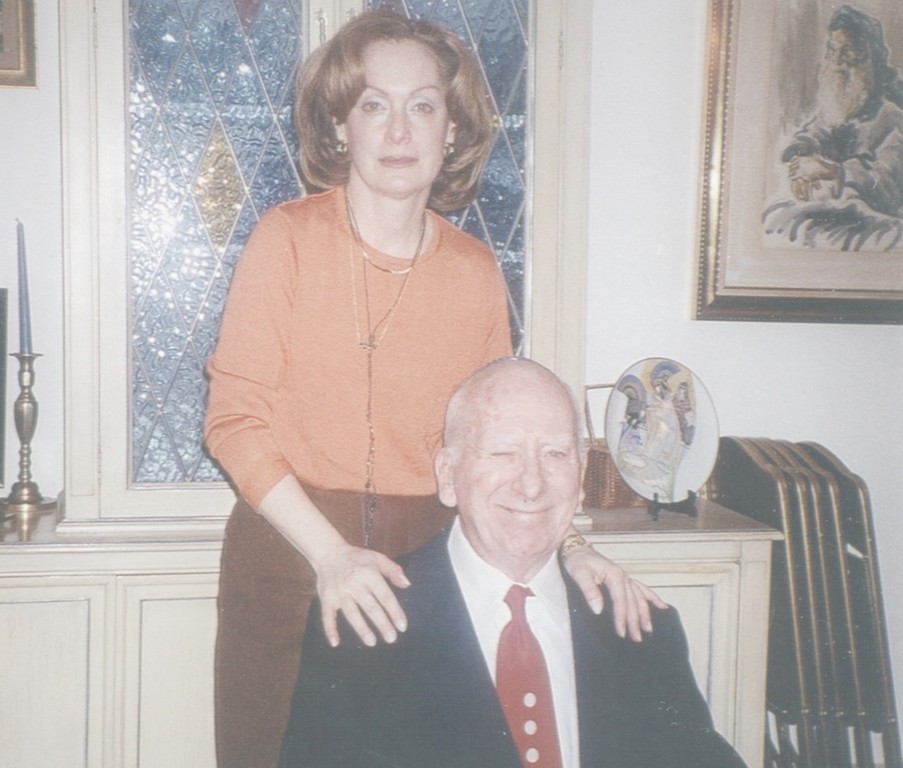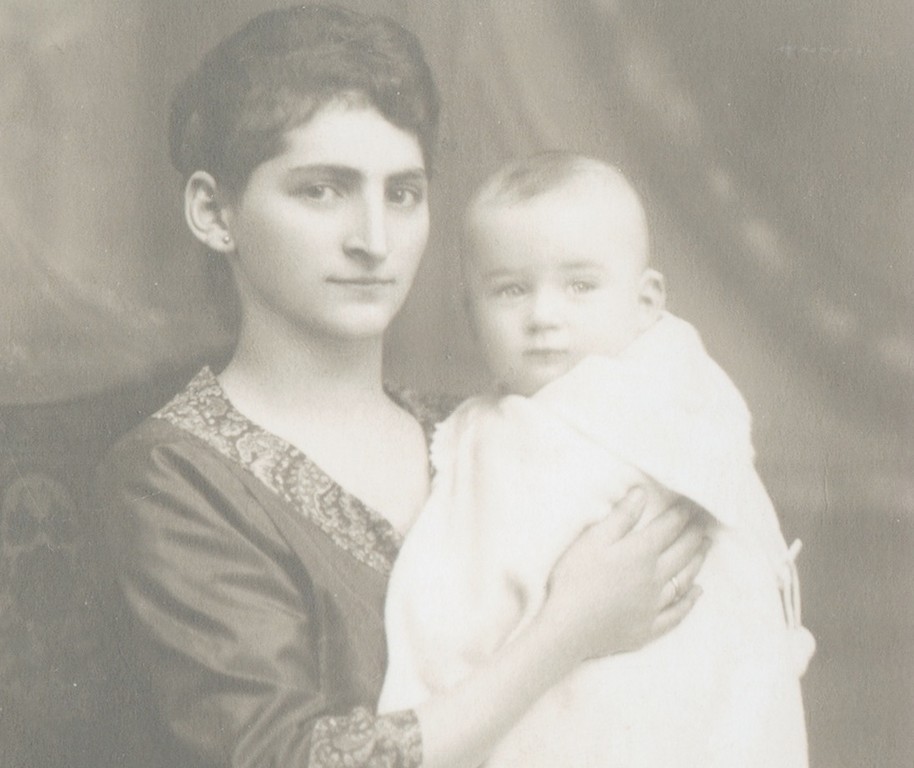LI family’s Shoah mystery is solved in Poland
The author is a resident of North Woodmere.
My father was reticent about telling me anything regarding his family that perished in the Holocaust. I knew that my grandparents were born and married in Poland and that they moved to Berlin — where my father and his younger brother were born — because of Poland’s anti-Semitism and pogroms.
After much prodding, my father, Isidor Stern (Yisroel Yitchak) z”l, told me that after the war a man contacted him and related to him the yahrtzeits of his parents and brother and the circumstances of their demise.
My grandfather, Nachum Stern z”l, who owned the Berlin apartment building in which he lived and had other business concerns as well, did not feel threatened by the rise of Hitler and Nazism, but my father, at age 17, was very concerned. After being slapped across the face by a Nazi in public, my father decided that since he was unable to secure entrance to Palestine, he would immigrate to America where he had aunts, uncles and cousins. His parents did not object but would not allow him to take his younger brother just bar mitzvahed that year, 1937.
After Kristallnacht, my grandparents and uncle were expelled from Berlin and sent back to their Polish town of origin. A copy of their expulsion papers were provided to me recently by an archivist at the Holocaust Museum in Washington.
My father was resourceful and enterprising, making his way to the United States and becoming a successful businessman manufacturing zippers. In 1943, he rented a room in Boro Park in the house where my maternal grandparents lived and relentlessly courted my mother, Goldie Aronson z”l. They married in March 1944 and my father was drafted into the Army two weeks later. In many of the letters that he wrote to my mother during his stint in the Army, he asked her to contact various agencies to ascertain information about his parents and brother with whom he had lost contact shortly after Kristallnacht. When my older sister Sharon was born in October 1945, my father still had no word about what happened to his family. By the time I was born in August 1948, he had gotten word.
I was named Leba Feige after my grandmother, who was from the town of Wisnitz. My younger brother, born in 1951, was named Nachum Naftali after my grandfather from Mszana Dolna, 30 miles south of Cracow.
The circumstances of the murder of my grandparents as told to me by my father were that on Aug. 19, 1942, 6 Elul, they were marched from the village square in Mszana Dolna to a nearby wooded area where they were shot and thrown into a mass grave together with all of the town’s other Jews. Only the young men were spared and sent to a labor camp. My uncle Naftali Stern z”l was among the “young men.” He reportedly died of typhus on Dec. 25, 1942, 17 Tevet, at age 18. Although I was curious for more information about my grandparents and uncle, realizing the great pain that this topic caused my father, I did not pursue further discussion. I have only one photograph of my grandparents with my uncle and one photograph of my grandmother holding my father as an infant. My father passed away in November 2006.
During a visit to the Holocaust Museum in Lower Manhattan, I purchased “A Voice in the Chorus,” a book by Abraham Zuckerman that described a young man’s life in Cracow prior to the war and the step by step deterioration of the quality of life of his family members and of all the Jews from the late 1930s until the end of the war. When I read a description of how the Jews living in Polish towns absorbed the Jews who were expelled from Germany, specifically Berlin, my interest piqued and I felt as though I was reading the story of my grandparents’ journey.
The book describes how on Aug. 13, 1942, the Jews of Dukla, a ghetto where the Jews of the surrounding towns including Rymanov were concentrated, were marched into the woods and shot at the edge of a pit into which the bodies fell. The author’s parents were among them. He was a strong young lad and was spared to work in a labor camp. After the war, the author returned to the town of Dukla where there stands a matzava (grave marker) on the site of that massacre. As that murderous action chronicled in the book took place a mere six days before the Mszana Dolna massacre, it started me thinking about the possibility that there might be a demarcation at the site of my grandparents’ murder.
I started searching online for additional information about my grandparents and the town Mszana Dolna and learned that the Nazi responsible for Jewish affairs in Mszana Dolna — and who in fact orchestrated the massacre — was Heinrich Hamann, described as particularly cruel and brutal. He escaped to Argentina after the war where he lived in comfort until 1960 when while working as a waiter in a restaurant he shot a customer over a conflict regarding the tip. He was then outed as a former Nazi and returned to Germany where he was tried, convicted of many heinous war crimes including but not limited to the murder of the Jews of Mszana Dolna, and sentenced to life in prison. He died in prison.
Then upon further research on a Jewish genealogy website, I encountered individuals from around the world who had searched the same town. I emailed all of them and many responded that they, too, had relatives in the mass grave in Mszana Dolna. One correspondent sent me a list of 1,029 names, the census of all the Jews in Mszana Dolna as of June 1942. The names of my grandparents and uncle appear on the list — number 654 Stern, Natan 27-12-1880; number 655 Stern, Leibe Feige 24-11-1883, and number 656 Stern, Naftali 25-10-1924. Next to my uncle’s name there was a check as there were next to all of the young males who were spared on Aug. 19, 1942, the day that the Nazis massacred 881 Jews in Mszana Dolna.
I discovered photos of a matzava at the site of the massacre and learned how “The List” was held by a Polish man from the town who subsequently gave it to a survivor, Jacob Weissberger, when he returned to Mszana Dolna after the war. What I still didn’t know were the particular circumstances regarding the death of my uncle and where he died.
Continued next week

 59.0°,
Mostly Cloudy
59.0°,
Mostly Cloudy 







